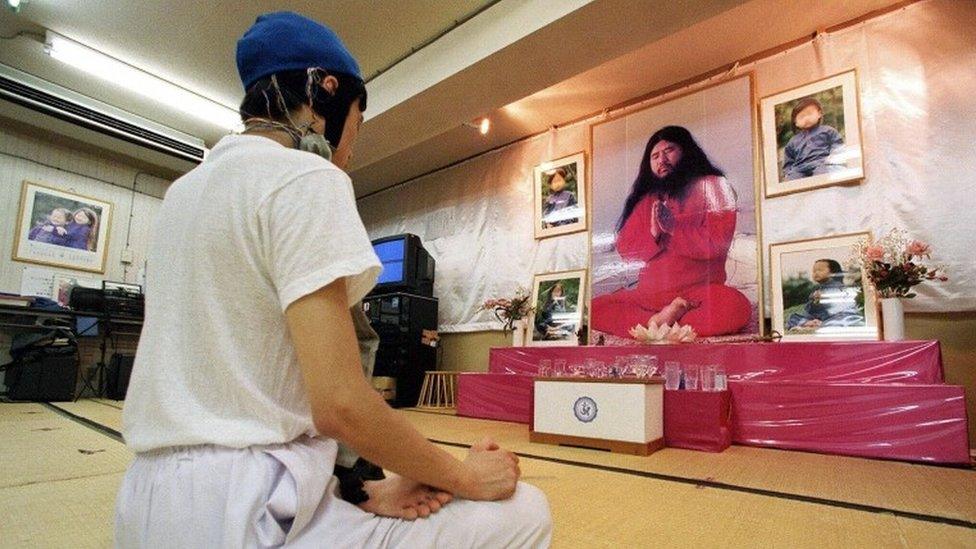Tokyo Sarin attack: Japan executes last Aum Shinrikyo members on death row
- Published
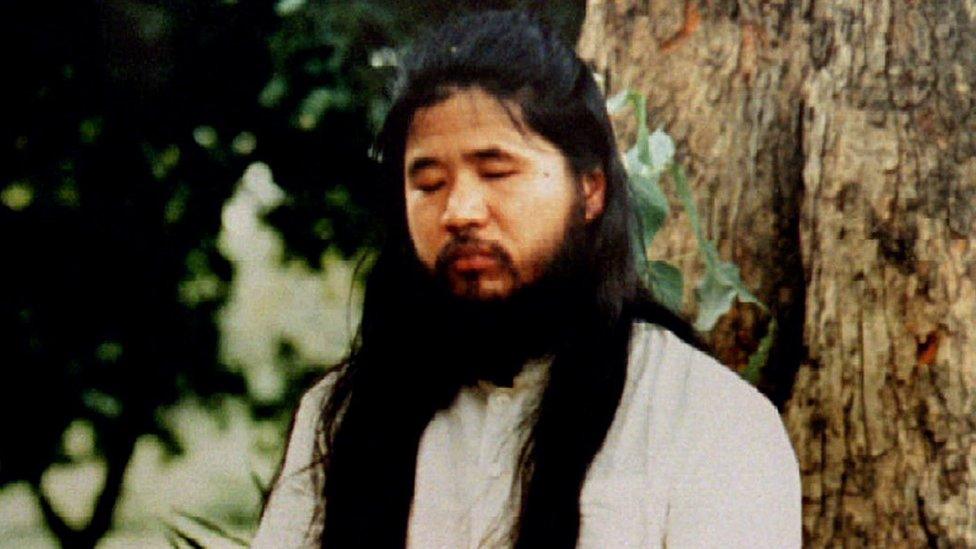
Cult leader Asahara was executed earlier this month
Japan has executed the remaining members of a cult behind the deadly 1995 Sarin attack on the Tokyo subway.
The six men were the last members of the Aum Shinrikyo cult on death row, and were executed on Thursday, the justice ministry said.
The Sarin attack, Japan's worst terror incident, killed 13 people and injured thousands more.
The cult was accused of several other murders and an earlier Sarin gas attack in 1994 which killed eight and left 600 injured.
"The pain and anguish of the people who were killed and their families as well as of the survivors left with disabilities, was unimaginable," said justice minister Yoko Kamikawa at a news conference.
Those put to death on Thursday included a key Aum Shinrikyo recruiter and cult members who released the nerve gas in train carriages, reported Japanese broadcaster NHK.
The execution of all 12 cult members involved in the attack as well as Asahara had been postponed until their final appeals were completed, which happened in January.
What was the Tokyo attack?
On 20 March 1995, cult members released Sarin on the subway in the Japanese capital.
Witnesses described noticing packages leaking some liquid and feeling stinging fumes hitting their eyes soon afterwards.
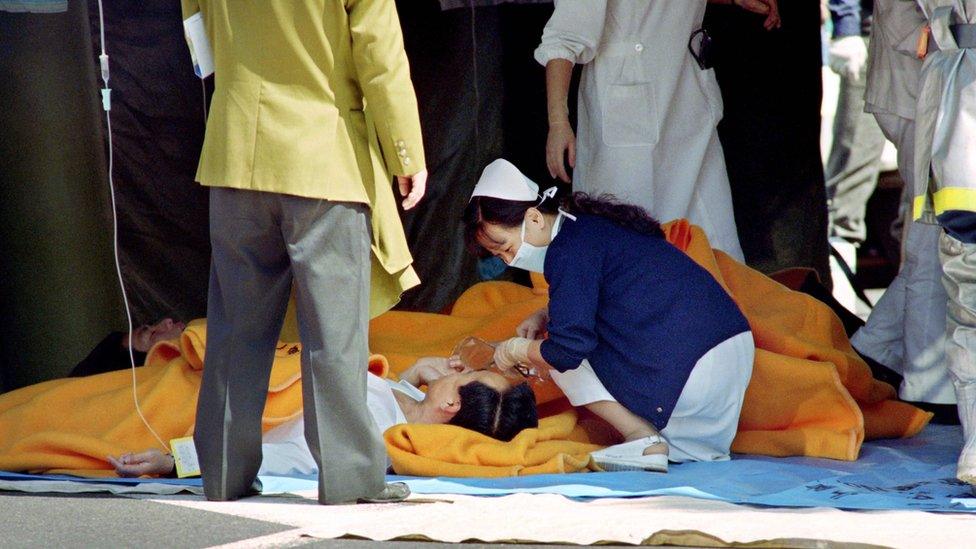
Victims were treated by emergency medical teams
The toxin struck victims down in a matter of seconds, leaving them choking and vomiting, some blinded and paralysed. Thirteen people died.
Aum Shinrikyo, often shortened to Aum, believed that the end of the world was coming and that those outside the cult would go to hell - unless they were killed by cult members.
In the months after, members of the cult made several failed attempts to release hydrogen cyanide in various stations.
What is Aum Shinrikyo?
The cult, whose name means "supreme truth", began in the 1980s as a spiritual group mixing Hindu and Buddhist beliefs, later working in elements of apocalyptic Christian prophesies.
Cult leader Shoko Asahara declared himself to be both Christ and the first "enlightened one" since Buddha.
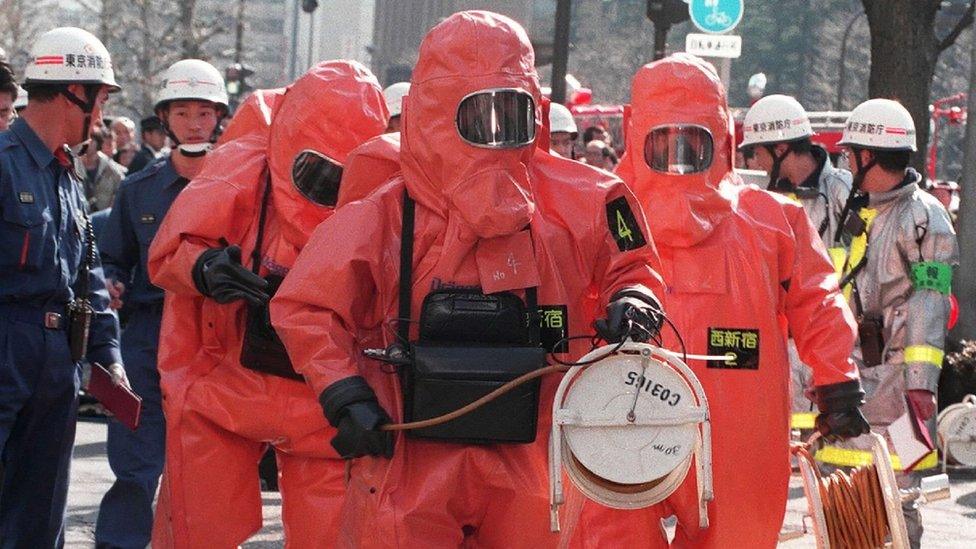
The cult attacked with deadly nerve gas
Aum Shinrikyo gained official status as a religious organisation in Japan in 1989 and picked up a sizeable global following.
The group gradually became a paranoid doomsday cult, convinced the world was about to end in a global war and that only they would survive.
The cult went underground after the 1995 attack, but did not disappear, renaming itself Aleph or Hikari no Wa.
Aum Shinrikyo is designated a terrorist organisation in the US and many other countries, but Aleph and Hikari no Wa are both legal in Japan, although designated as "dangerous religions" subject to surveillance.
- Published6 July 2018
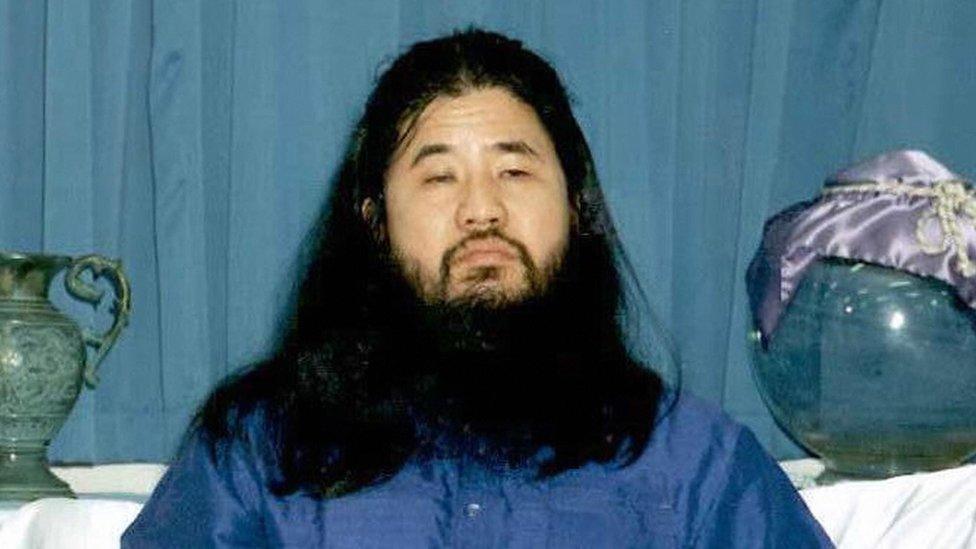
- Published6 July 2018
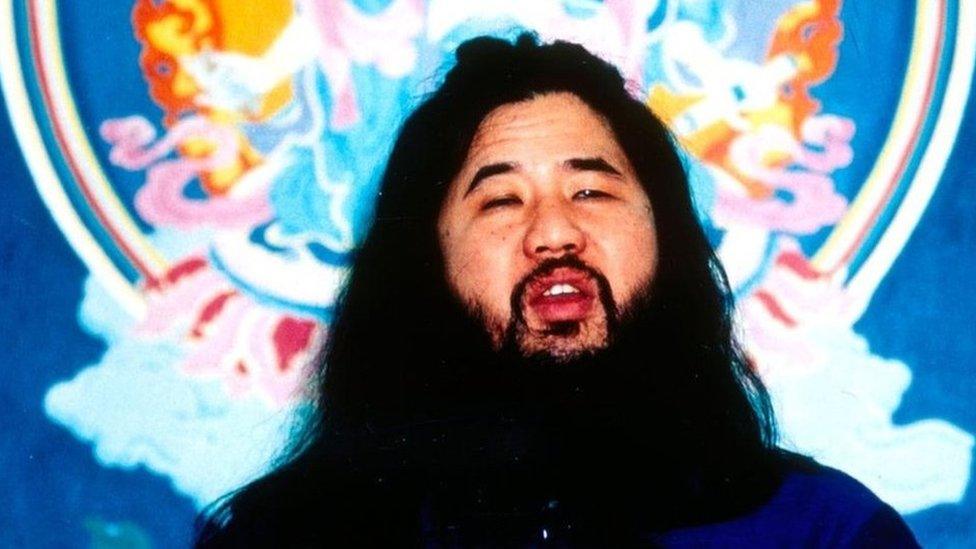
- Published6 July 2018
